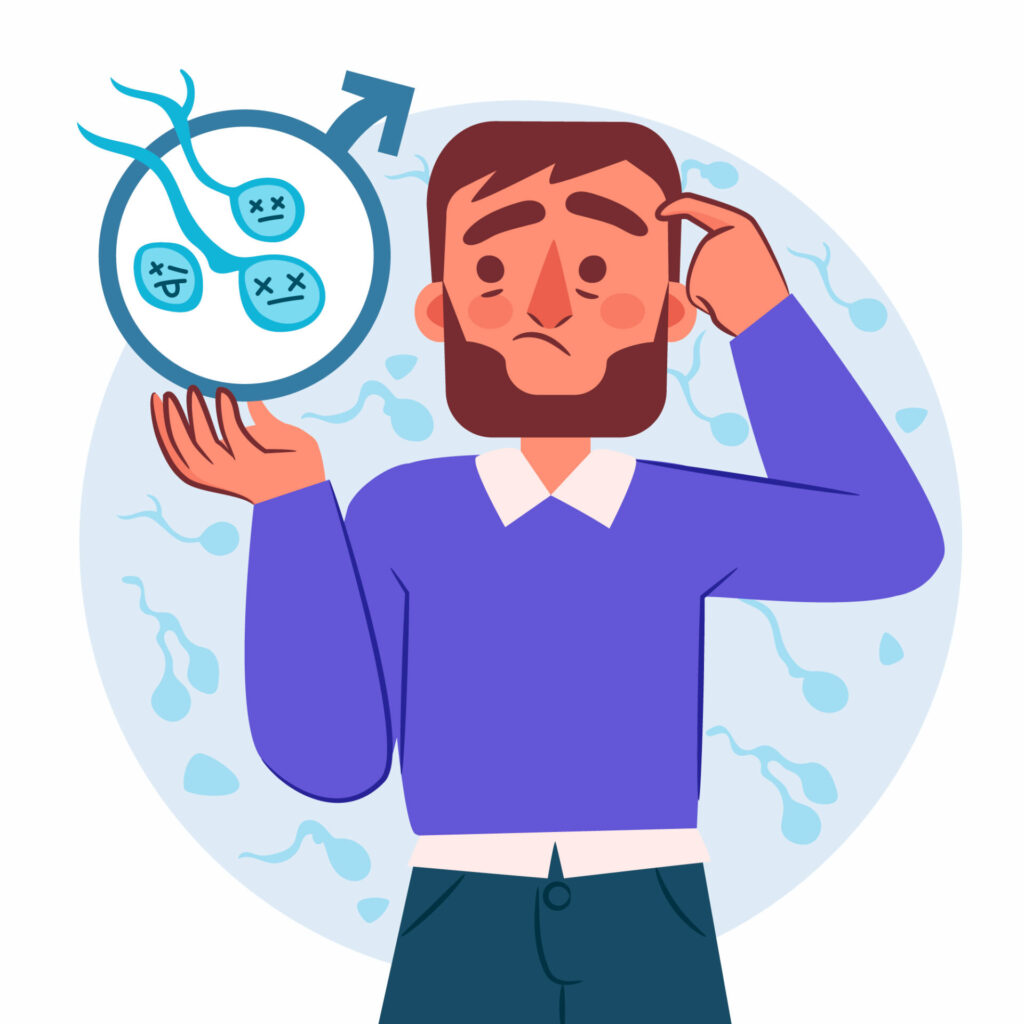HIGHLIGHTS
20 December 2020
5 yoga poses for couples to Enhance your relationship with your partner, level up your happiness in bed.
READ MORE20 December 2020
7 the procedure takes care of yourself and the wife before collecting eggs-collecting sperm.
READ MORE20 December 2020
Protein, a key nutrient of a woman, preparation for pregnancy- preparation for an egg collection.
READ MORE
Why Is It Important for a Health Check Up for Both Male and Female Before Getting Pregnant?
READ MORE
Destination IVF: Why Bangkok is a Premier Choice for International Patients Seeking Fertility Treatment
READ MOREWhat is ICSI: A Comprehensive Overview of the Procedure & Results
 06 Jul 2023
06 Jul 2023

For couples struggling with infertility, the journey to parenthood can be fraught with challenges and heartbreak. One of the most significant advancements in fertility treatments is Intracytoplasmic Sperm Injection (ICSI), a procedure that has transformed countless lives. As a result, it is crucial to understand the role of ICSI in fertility treatment and the latest advancements in this area.
So what is ICSI? Read on to explore the intricacies of ICSI, its applications, and the steps involved in this groundbreaking procedure.
Short Summary
- ICSI is a fertility treatment procedure used to address male and female infertility issues.
- The success rate of ICSI typically ranges between 70-85%. Several factors can influence the outcome.
- Potential risks associated with ICSI include birth defects, chromosomal abnormalities, autism and pregnancy complications.
Understanding ICSI: Intracytoplasmic Sperm Injection
Intracytoplasmic sperm injection (ICSI) is a specialized procedure used in in-vitro fertilization (IVF) to address severe male infertility issues. The crux of the ICSI process is injecting a single sperm directly into each mature egg, using specialist equipment in the laboratory.
The only difference between IVF and ICSI is that, instead of combining the sperm with the eggs and allowing them to fertilize, a skilled embryologist injects a single sperm into the egg. This direct sperm injection optimizes the probability of fertilization by bypassing any potential barriers the sperm may encounter when attempting to penetrate the egg.
The ICSI Process
The ICSI process follows the same procedure as traditional In Vitro Fertilization (IVF), with the exception of fertilization. A micropipette is used to inject a single sperm into the centre of an egg, thus circumventing the requirement for sperm motility and increasing the likelihood of successful fertilization.
This technique has proven to be highly effective in cases of severe male infertility, such as low sperm count, poor motility, or obstructive azoospermia.
Role in Assisted Reproductive Technology
ICSI is an integral component of Assisted Reproductive Technology (ART) and is employed when male infertility is a factor in conception. It offers a viable solution for couples with severely impaired sperm characteristics, such as cryptozoospermia, enabling them to overcome their infertility challenges.
Although ICSI proves to be a powerful tool in addressing male infertility, it is essential to recognize that it carries potential risks, such as an increased risk of birth defects, miscarriage, and ovarian hyperstimulation syndrome.
Male Factor Infertility & ICSI

ICSI (Intra Cytoplasmic Sperm Injection) is a successful fertility treatment for couples who have been diagnosed with male fertility issues If you have not checked up yet we invite you in for a male fertility check-up. This can include low sperm count, poor morphology or motility problems, anti-sperm antibodies, or those that have had a vasectomy or unsuccessful vasectomy reversal. In cases where male infertility issues persist, ICSI may be recommended for couples who have experienced poor or no fertilization rates using standard in-vitro fertilization (IVF).
Needle aspiration and microsurgical sperm retrieval are the suitable alternatives available to a man if his competent microsurgical vasectomy reversal yields unsuccessful results. These options are also viable for men who choose not to go through the surgical route.
Low Sperm Count
In cases of low sperm count, ICSI is an effective solution as it overcomes this obstacle by directly injecting a single sperm into an egg. The success rate of ICSI with low sperm count can vary, but fertilization rates achieved with the ICSI procedure are a reliable indicator of success, with some IVF laboratories reporting fertilization rates between 80 to 85 per cent.
However, it is important to be aware of the potential risks associated with ICSI and low sperm count, including the possibility of genetic abnormalities, an elevated risk of miscarriage, and an increased probability of multiple births.
Poor Sperm Motility
Asthenozoospermia, characterized by reduced or absent sperm motility, is another male infertility issue that can be addressed with ICSI. By injecting a single sperm into the egg, ICSI eliminates the need for sperm motility, increasing the likelihood of successful fertilization.
However, potential risks associated with ICSI for men with asthenozoospermia include an elevated risk of chromosomal abnormalities in the resultant embryos and an increased likelihood of miscarriage.
Obstructive or Non-Obstructive Azoospermia
ICSI can also be used to treat obstructive or non-obstructive azoospermia, a condition where the testicle is either not producing sperm or there is an obstruction preventing sperm release. Although the probability of obtaining viable sperm is relatively low, the option of utilizing donor sperm may be considered.
In cases where individuals with azoospermia, anejaculation, or retrograde ejaculation require a procedure to collect sperm, electroejaculation and microscopic testicular sperm extraction may be performed in a hospital setting.
Female Fertility Issues & ICSI

While ICSI is primarily utilized to address male infertility issues, it can also play a role in alleviating certain female fertility challenges. The preparation for ICSI involves obtaining a sperm sample from the male patient or a sperm donor, followed by washing and concentrating the sperm.
The process of ICSI, involving ovarian stimulation, egg retrieval, and sperm collection, is crucial in ensuring the success of the procedure and increasing the chances of achieving fertilization.
Preparing for the ICSI Procedure
Before ICSI, healthcare providers must obtain eggs and sperm. The preparation for ICSI involves several steps, including ovarian stimulation, egg retrieval, and sperm collection.
The IVF laboratory team is responsible for executing the necessary steps to ensure the safety and efficacy of the ICSI procedure.
Ovarian Stimulation
Ovarian stimulation is a crucial step in the ICSI process, wherein the female partner receives medication to stimulate the ovaries. The purpose of ovarian stimulation is to increase the number of eggs available for fertilization, thus increasing the likelihood of a successful ICSI procedure.
Egg Retrieval
Egg retrieval is another pivotal step in the ICSI process, as it supplies the eggs that are employed in the ICSI process wherein a single healthy sperm is directly injected into each mature egg. The process of egg retrieval in ICSI involves utilizing ultrasound imaging to direct a slender needle through the pelvic cavity to extract or retrieve mature eggs from the woman’s ovaries.
This procedure is essential in ensuring the success of the ICSI process and maximizing the chances of achieving fertilization.
Sperm Collection
Sperm collection is a vital component of the ICSI process, during which sperm is collected. Unless frozen sperm is being used, sperm collection is typically conducted on the same day as the egg retrieval.
A semen analysis is carried out promptly to assess sperm volume, motility, and quality. If necessary, a laboratory may freeze and store the sperm (sperm banking) for potential future in vitro fertilization use at the clinic.
Success Rates & Potential Risks of ICSI
ICSI has been observed to fertilize 50% to 80% of eggs, making it a highly successful method of assisted reproductive technology. However, it is important to note that the pregnancy success rates for ICSI and traditional IVF are equivalent.
Once fertilization is achieved, the probability of delivering one infant, twins, or triplets is the same for couples who undergo in vitro fertilization (IVF) with or without ICSI.
Success Rates
The success rate of ICSI varies; however, on average, between 70-85% of eggs injected using ICSI become fertilized. It should be noted that fertilization does not always result in a successful pregnancy.
Several factors can affect ICSI success rates, such as the age of the woman, the quality of the sperm, the quality of the eggs, and the expertise of the doctor performing the procedure.
Potential Risks
Research suggests that ICSI carries a slightly higher risk than other fertility treatments, including the potential for damage to the eggs during the cleaning and injection process. Additionally, there is an increased risk of certain birth defects, such as Beckwith-Wiedemann syndrome, Angelman syndrome, hypospadias, and sex chromosome abnormalities.
Studies also indicate that ICSI may be linked to an elevated risk of chromosomal abnormalities, autism, and pregnancy complications such as high blood pressure, preeclampsia, growth retardation, and bleeding. Furthermore, there is a slightly increased chance that a male child born from the ICSI process may also experience male fertility issues.
After the ICSI Procedure
Following the ICSI procedure, the fertilized eggs are monitored in the laboratory for several days to ensure their proper development. The embryologist will assess the egg for signs of cell division and growth, as well as the size of the blastocyst, which is the stage of development the embryo reaches after several days of cell division. The size of the blastocyst is a significant marker of the embryo’s health and viability.
The embryo transfer process involves transferring the embryo from the laboratory to the uterus, where it is then released for potential implantation and growth. Approximately nine days after the embryo transfer, it is possible to detect a pregnancy.
Summary
Throughout this blog post, we have explored the intricacies of ICSI, its applications in addressing male infertility, and the steps involved in this groundbreaking procedure. From understanding the ICSI process and its role in assisted reproductive technology to examining success rates and potential risks, it is evident that ICSI has been a game-changer in the world of fertility treatments. As we continue to advance in the field of reproductive medicine, it is vital to stay informed about the latest developments and breakthroughs in order to make well-informed decisions on your journey to parenthood. May the knowledge gained from this blog post empower and guide you on your path to building the family of your dreams.
Frequently Asked Questions
How is ICSI different from normal?
ICSI is a form of in-vitro fertilization where one healthy sperm is directly injected into a mature egg instead of relying on natural fertilization. This allows for increased control over the success of fertilization and can be particularly beneficial when dealing with sperm related fertility issues.
In this way, ICSI differs from the traditional IVF method.
What is ICSI used for?
ICSI is a fertility treatment used in conjunction with in vitro fertilization (IVF) that allows for the direct injection of a single sperm into an egg for successful fertilization. It is often used to overcome cases of male infertility, such as low sperm count or poor sperm motility.
Is ICSI suitable for IVF?
Yes, ICSI is beneficial for IVF, as it improves the effectiveness of the process and increases the chances of achieving a successful pregnancy. Thus, ICSI has become a viable option to resolve fertility issues.
If you have any more questions regarding ICSI then get in touch with the team at the Bangkok Central Clinic IVF & Wellness. We are a highly respected fertility clinic in Thailand with a proud history of getting results for our clients.
HIGHLIGHTS
20 December 2020
5 yoga poses for couples to Enhance your relationship with your partner, level up your happiness in bed.
READ MORE20 December 2020
7 the procedure takes care of yourself and the wife before collecting eggs-collecting sperm.
READ MORE20 December 2020
Protein, a key nutrient of a woman, preparation for pregnancy- preparation for an egg collection.
READ MORE
Why Is It Important for a Health Check Up for Both Male and Female Before Getting Pregnant?
READ MORE


















